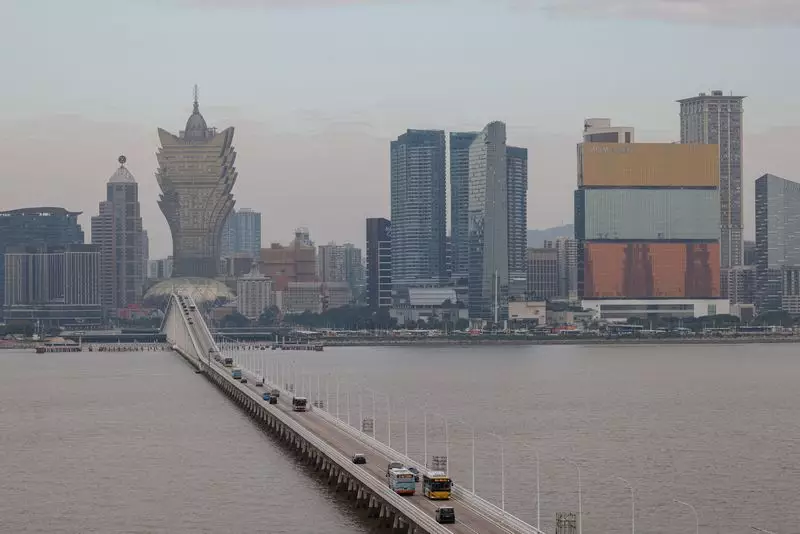Macau, the renowned gambling capital of the world, recently reported a significant surge in casino revenues for 2024. The figures reflect a 23.9% increase from the previous year, amounting to 226.8 billion patacas (approximately $28.35 billion). While this uptick is noteworthy, it remains evident that the revenues have yet to recover to their pre-pandemic peak of 292.5 billion patacas recorded in 2019. This discrepancy underscores an essential reality for Macau: the necessity for economic diversification.
The figures from the Gaming Inspection and Coordination Bureau highlight a mixed bag. Although the 2024 revenue surpassed the government’s projection of 216 billion patacas, it is crucial to place this growth in a broader historical context. December’s results were particularly telling, as revenues dipped by 2.0%, marking the first annual decline for the year. This downturn coincided with heightened security measures during a significant visit by President Xi Jinping, emphasizing the geopolitical realities intertwined with Macau’s economic performance.
X Jinping’s visit to Macau held symbolic weight, celebrating 25 years since the territory’s return to Chinese sovereignty. However, it also served as a clarion call for the territory to rethink its economic strategies. Xi urged local policymakers to develop the “courage” needed to explore avenues beyond the casino industry. This plea comes against a backdrop of heightened scrutiny by the Chinese government regarding high-roller gambling, a segment that had previously driven substantial profits.
The emphasis on integrating Macau’s economy with the Greater Bay Area— a massive urban region that includes neighboring cities like Hong Kong and Guangzhou— offers intriguing potential. Strengthening these connections could foster a more diverse industrial landscape, allowing Macau to access new markets and reduce reliance on gambling revenues.
Moving forward, Macau’s leaders face both a challenge and an opportunity. The insistence on participating in the Belt and Road Initiative signals a shift toward broader geopolitical engagement and increased cooperation with Portugal and other Portuguese-speaking nations. This cooperative dynamic could facilitate trade opportunities that have remained dormant in light of Macau’s narrow economic focus on gaming.
With around 80% of its tax revenue coming from casinos, Macau’s reliance on gaming has made its economic structure highly susceptible to fluctuations in visitor numbers and regulatory changes. Diversification into tourism sectors, technology, and green industries could enhance economic resilience and broaden the tax base.
Conclusion drawn from the current economic trajectory indicates that while gaming revenues may be on the rise, they are not sufficient to support a sustainable future for Macau. The territory’s policymakers must heed Xi Jinping’s call for economic diversification. By embracing new industries and collaborating more robustly with its neighboring regions, Macau can work toward a balanced and stable economic future, transforming from a singularly-focused gambling hub into a multifaceted economy capable of thriving in a rapidly changing global landscape.

